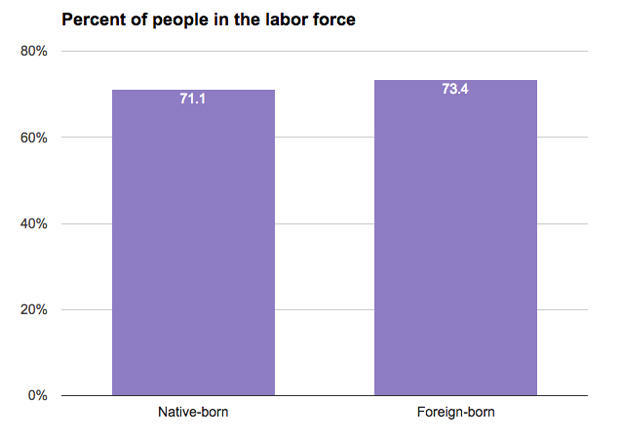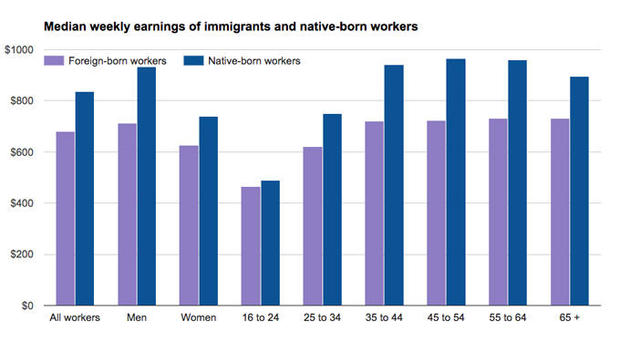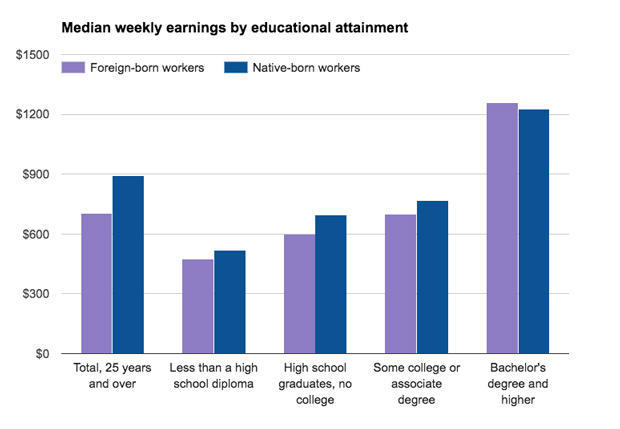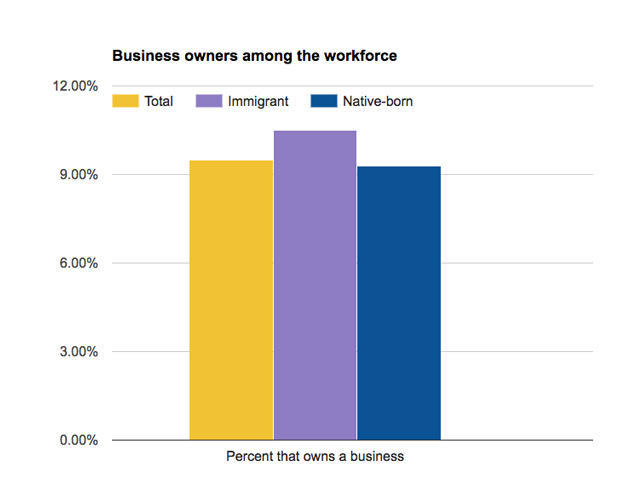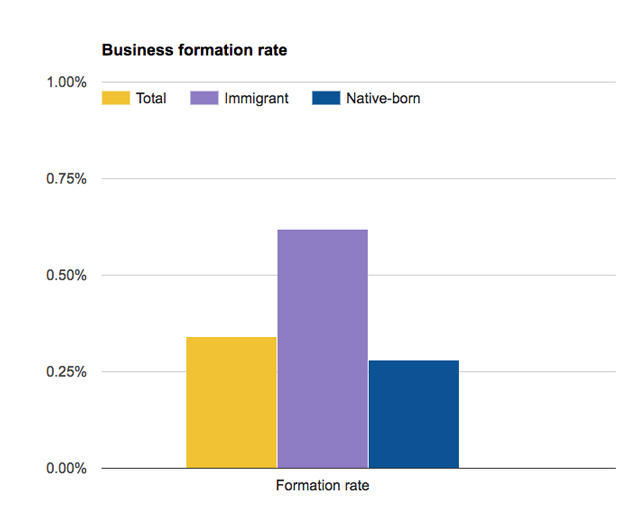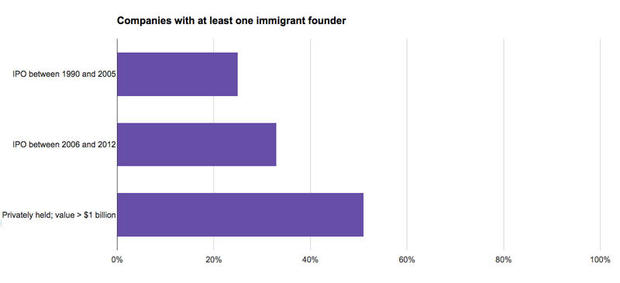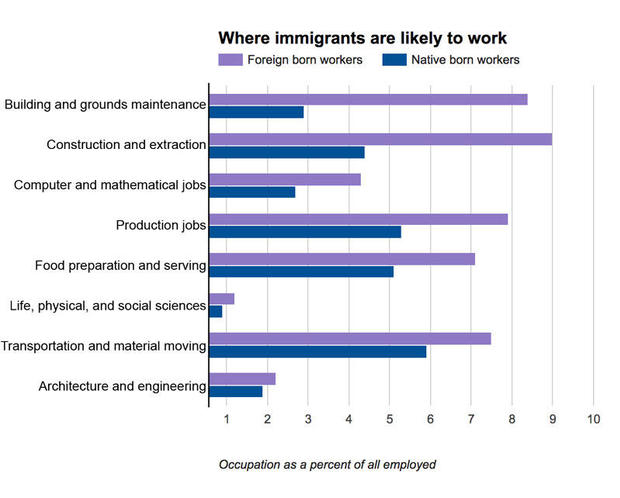Immigrants' impact on the U.S. economy in 7 charts
The furor over U.S. immigration tends to gloss over one thing: the impact of immigrants on the U.S. economy. About 25 million immigrants are working in the country today, filling jobs from programming to construction. (That figure includes legal immigrants, temporary residents, refugees and undocumented immigrants, but the data does not distinguish between people in different categories.)
As public debate flares over the conditions for entering the U.S., immigrants remain a major part of the world’s largest economy. Here’s how immigrants living in America today compare with native-born people as gauged by their likelihood of holding a job, earnings and other measures.
1. Immigrants participate in the U.S. labor force at a slightly higher rate than native-born Americans
The Organization for Economic Cooperation and Development calculated the labor force participation rate -- the percentage of working-age adults who are employed or looking for a job -- by counting the number of people in each group (native-born or immigrant) who were either working or looking for a job, relative to the size of that group in the country.
2. U.S. immigrants earn consistently less than native-born workers
Immigrants’ income gap with people born in the U.S. holds true for both women and men across all age groups. Young immigrants make nearly equal pay to their native-born counterparts, but the gap increases as workers age.
3. More-educated immigrants earn more than their native-born counterparts
Immigrants with a college degree or higher earn slightly more than native-born workers in the same category -- about 2.8 percent more, according to recent U.S. Labor Department data.
4. Immigrants are more likely to own businesses than native-born Americans
An analysis from the Small Business Administration found that 10.5 percent of U.S. immigrants own a business, compared with 9.3 percent of native-born Americans. In other words, an individual immigrant is about 10 percent more likely to own a business than a nonimmigrant.
5. Immigrants start businesses at higher rates
For every 10,000 immigrants to the U.S., about 62 will start a business -- more than double the rate for the native-born.
6. Immigrant business founders have grown more important to the economy over time
Immigrants were involved in founding one-quarter of the companies that went public between 1990 and 2005. Their importance has grown since then: One-third of the companies that went public between 2006 and 2012 had at least one immigrant founder. Of the 87 privately held companies currently valued at over $1 billion, 51 percent had immigrant founders.
7. Immigrants tend to cluster in certain occupations
Compared with people born in the U.S., immigrants are more likely to work in buildings and grounds maintenance, construction, computer, math or science occupations, and jobs in food preparation or service. Native-born workers are more likely to be employed in sales, business and financial operations, office support or social service jobs.
